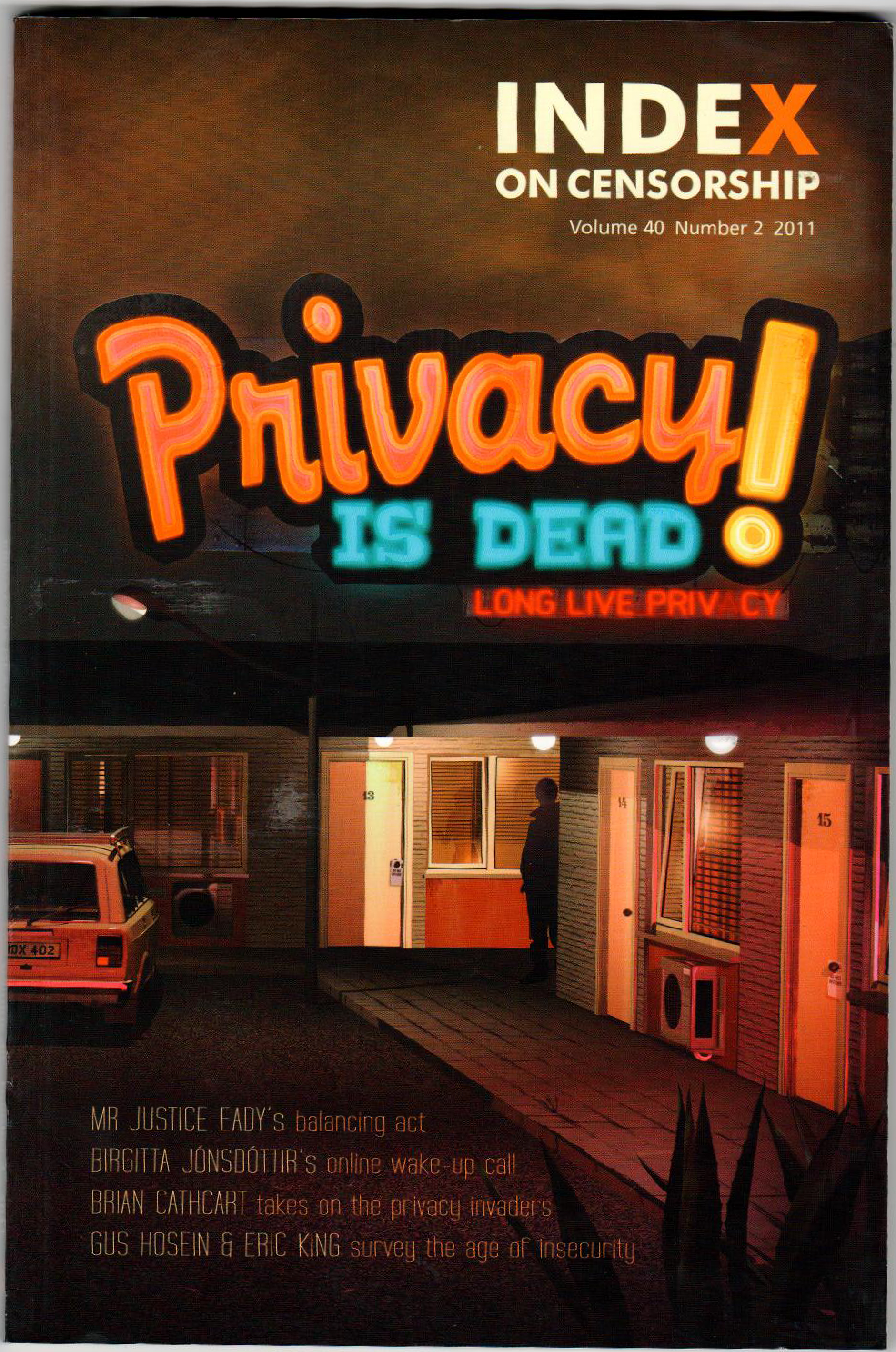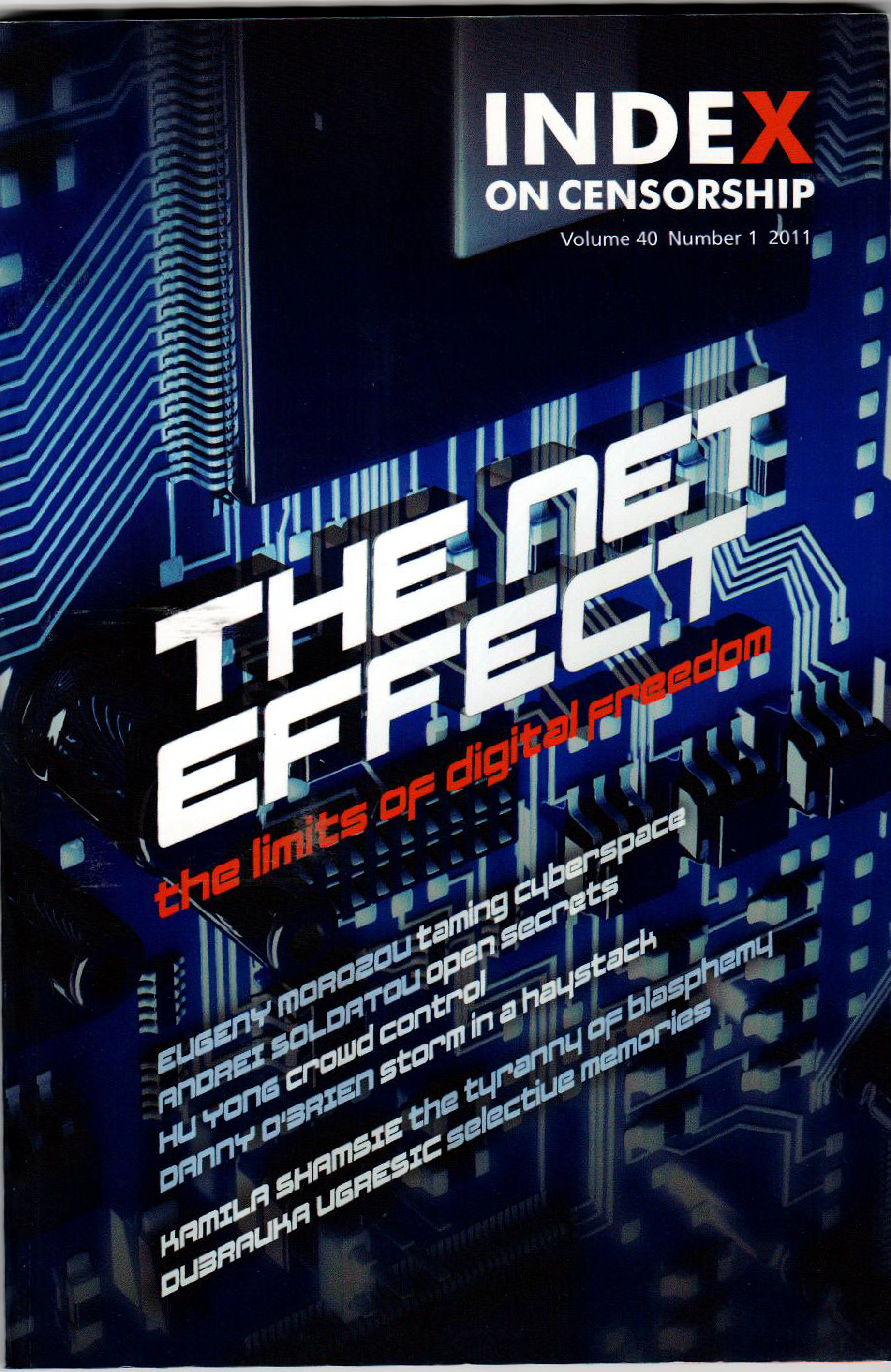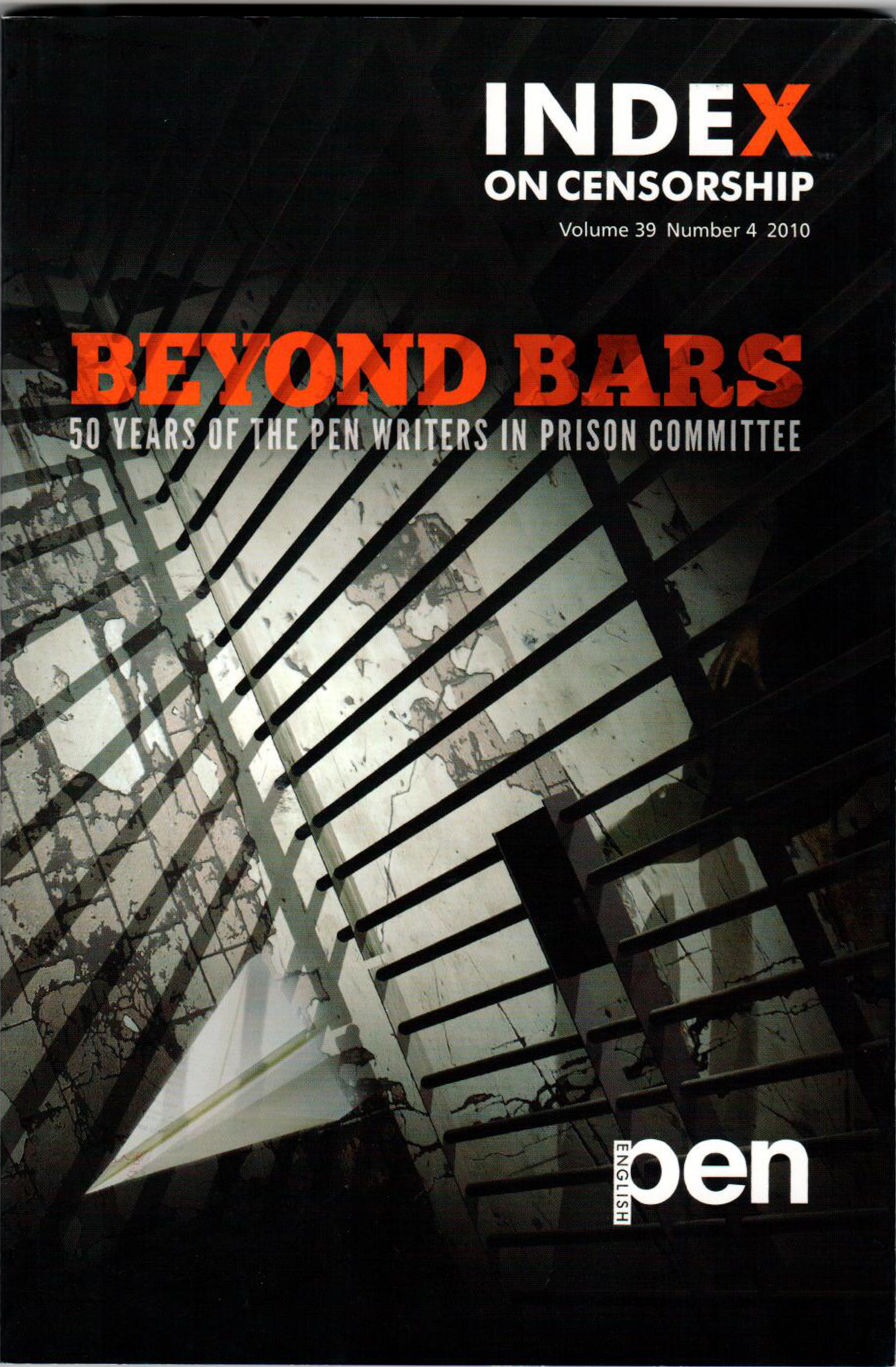The British press loves to hate high court judge Sir David Eady for his judgments in privacy cases. He talks to
Joshua Rozenberg about balancing rights


The British press loves to hate high court judge Sir David Eady for his judgments in privacy cases. He talks to
Joshua Rozenberg about balancing rights

UK authorities have announced an outright ban on The Human Centipede II (Full Sequence). But how do censors make these decisions? Murray Perkins is a film examiner who classifies hard-core porn. He spoke to Index about what it takes to make the grade
Proposed bans on face coverings are a reflection not on Islam, but on European insecurity, says Myriam Francois-Cerrah

How technology continues to transform the culture of activism, but also how it’s not popular to view it more cautiously as past of a long game.

London Imam Usama Hasan has been caught up in a storm of religious controversy over his views. In an article from the Index archive, he argues that Islam traditionally embraces debate

Our special report brings together some of the world’s finest writers to look back at one of the longest running campaigns for freedom of expression
The importance of Norman Wisdom to Albanians during the Hoxha period cannot be overestimated, writes Mira Blushi

Read about the songs they tried to ban, the musicians stopped from playing live, and the singers who are put on trial, in the bumper Smashed Hits 2.0 issue of Index
Radiohead’s Colin Greenwood explains why the band released their last album direct to their fans

My song Beng Beng Beng was a simple, light-hearted love song coming from an African man’s perspective.
A quarterly journal set up in 1972, Index on Censorship magazine has published oppressed writers and refused to be silenced across hundreds of issues.
The brainchild of the poet Stephen Spender, and translator Michael Scammell, the magazine’s very first issue included a never-before-published poem, written while serving a sentence in a labour camp, by the Soviet dissident Aleksandr Solzhenitsyn, who went on to win a Nobel prize later that year.
The magazine continued to be a thorn in the side of Soviet censors, but its scope was far wider. From the beginning, Index declared its mission to stand up for free expression as a fundamental human right for people everywhere – it was particularly vocal in its coverage of the oppressive military regimes of southern Europe and Latin America but was also clear that freedom of expression was not only a problem in faraway dictatorships. The winter 1979 issue, for example, reported on a controversy in the United States in which the Public Broadcasting Service had heavily edited a documentary about racism in Britain and then gone to court attempting to prevent screenings of the original version. Learn more.